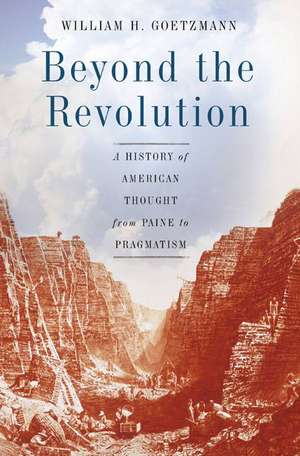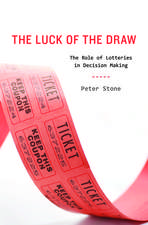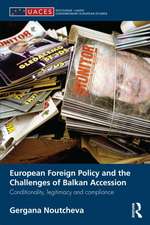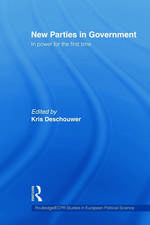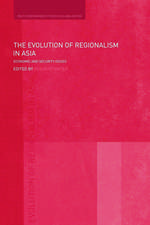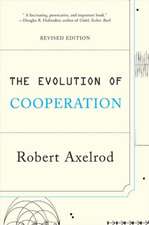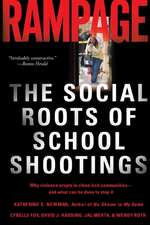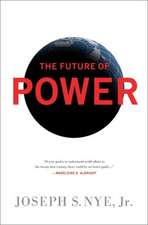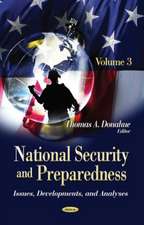Beyond the Revolution: A History of American Thought from Paine to Pragmatism
Autor William H. Goetzmannen Limba Engleză Hardback – 24 feb 2009
From
1776,
when
Citizen
Tom
Paine
declared,
“The
birthday
of
a
new
world
is
at
hand,”
America
was
unique
in
world
history.
A
nation
suffused
with
the
spirit
of
explorers,
constantly
replenished
by
immigrants,
and
informed
by
a
continual
influx
of
foreign
ideas,
it
was
the
world's
first
truly
cosmopolitan
civilization.
InBeyond
the
Revolution,
Pulitzer
Prize-winning
historian
William
H.
Goetzmann
tells
the
story
of
America's
greatest
thinkers
and
creators,
from
Paine
and
Jefferson
to
Melville
and
William
James,
showing
how
they
built
upon
and
battled
one
another's
ideas
in
the
critical
years
between
1776
and
1900.
An
unprecedented
work
of
intellectual
history
by
a
master
historian,
this
book
will
be
essential
reading
for
anyone
interested
in
the
origins
of
our
national
culture.
Preț: 352.36 lei
Nou
Puncte Express: 529
Preț estimativ în valută:
67.43€ • 70.31$ • 56.04£
67.43€ • 70.31$ • 56.04£
Carte tipărită la comandă
Livrare economică 21 martie-04 aprilie
Preluare comenzi: 021 569.72.76
Specificații
ISBN-13: 9780465004959
ISBN-10: 0465004954
Pagini: 480
Dimensiuni: 165 x 241 x 38 mm
Greutate: 0.7 kg
Editura: BASIC BOOKS
Colecția Basic Books
ISBN-10: 0465004954
Pagini: 480
Dimensiuni: 165 x 241 x 38 mm
Greutate: 0.7 kg
Editura: BASIC BOOKS
Colecția Basic Books
Notă biografică
William
H.
Goetzmannis
Jack
S.
Blanton,
Sr.
Professor
in
History
and
American
Studies
at
the
University
of
Texas
at
Austin.
He
taught
American
Intellectual
History
for
fifty
years
at
Yale
and
the
University
of
Texas.
HisExplorations
and
Empirewon
both
the
Pulitzer
Prize
and
Francis
Parkman
Award.
He
lives
in
Austin,
Texas.
Recenzii
New
York
Observer
“InBeyond the Revolution, intellectual historian William Goetzmann reminds us that the most brazen utopian ambition of them all had nothing to do with sex or rapture, but was rather founded in the radical provisions of ‘we the people' and those ‘certain inalienable rights.'”
New York Times Book Review
“[Goetzmann's] strange and valuable book…is richly populated with radicals and utopians who, with one eye on the innermost soul and the other on world history, created a tradition of open-ended experiment.”
Howard R. Lamar, Sterling Professor Emeritus of History, Yale University
“Beyond the Revolutionis one of the most complete, wide-ranging, readable, and insightful accounts of American intellectuals we have ever had. It deserves to be recognized as a major classic history of American intellectuals to be read by every thinking American.”
Virginia Quarterly
“An excellent summary of American thought before the Civil War. It is sure to engage readers interested not only in the history of ideas but also in the history of the early nation.”
Texas Observer
“We now have Goetzmann's life of learning distilled into what may be the capstone of his career to help us understand who we were.”
“InBeyond the Revolution, intellectual historian William Goetzmann reminds us that the most brazen utopian ambition of them all had nothing to do with sex or rapture, but was rather founded in the radical provisions of ‘we the people' and those ‘certain inalienable rights.'”
New York Times Book Review
“[Goetzmann's] strange and valuable book…is richly populated with radicals and utopians who, with one eye on the innermost soul and the other on world history, created a tradition of open-ended experiment.”
Howard R. Lamar, Sterling Professor Emeritus of History, Yale University
“Beyond the Revolutionis one of the most complete, wide-ranging, readable, and insightful accounts of American intellectuals we have ever had. It deserves to be recognized as a major classic history of American intellectuals to be read by every thinking American.”
Virginia Quarterly
“An excellent summary of American thought before the Civil War. It is sure to engage readers interested not only in the history of ideas but also in the history of the early nation.”
Texas Observer
“We now have Goetzmann's life of learning distilled into what may be the capstone of his career to help us understand who we were.”
